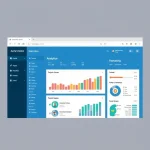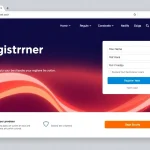Understanding Sales AI: What It Is and How It Works
The Basics of Sales AI Technology
Sales AI refers to the integration of artificial intelligence technologies within the sales process, aimed at enhancing various facets of the sales function. This includes automation of routine tasks, intelligent lead scoring, predictive analytics, and personalizing customer interactions. By utilizing machine learning algorithms and data analysis, Sales AI can process vast amounts of information, delivering actionable insights that help sales teams make informed decisions.
At its core, Sales AI leverages historical sales data, customer behavior analytics, and market trends to create a fully automated and streamlined sales process. Sales AI solutions can help organizations identify high-potential leads, optimize sales strategies, and ultimately drive revenue growth.
Key Benefits of Implementing Sales AI
The integration of Sales AI offers numerous benefits that can significantly transform an organization’s sales approach:
- Increased Efficiency: By automating repetitive tasks such as data entry and appointment scheduling, Sales AI allows sales teams to focus on high-value activities like relationship building and closing deals.
- Data-Driven Insights: Sales AI tools analyze customer behavior and predict future trends, enabling sales professionals to tailor their strategies accordingly.
- Enhanced Personalization: With AI, businesses can create personalized interactions based on detailed customer profiles and behavioral insights, resulting in higher engagement rates.
- Improved Lead Generation: Sales AI helps identify and qualify leads based on relevant data, ensuring that sales teams spend their time on the most promising opportunities.
Common Misconceptions About Sales AI
While Sales AI offers many advantages, several misconceptions can hinder its adoption:
- AI Replaces Human Salespeople: Many fear that automation will replace jobs, but the reality is that Sales AI complements human skills by handling tedious tasks and providing valuable insights.
- Sales AI is Only for Large Enterprises: Small and medium-sized businesses can also benefit significantly from Sales AI tools tailored to their specific needs and budget.
- AI Solutions Are Too Complex: Modern Sales AI tools are designed with user-friendly interfaces, making them accessible for users with varying technical backgrounds.
How Sales AI Can Transform Your Sales Process
Automating Routine Tasks with Sales AI
Automating routine tasks is one of the most immediate benefits of implementing Sales AI. Many tasks that sales professionals perform, such as lead nurturing, follow-ups, and data entry, can be automated using AI-driven solutions. Here’s how this transformation occurs:
- Automated Lead Scoring: AI algorithms can analyze lead characteristics and behavior to score them based on their likelihood to convert. This allows sales teams to prioritize high-value leads effectively.
- Follow-up Automation: Automated tools can trigger personalized email follow-ups based on specific customer interactions, ensuring timely engagement without the need for manual tracking.
- Data Entry Automation: AI can simplify data entry tasks by auto-filling forms and recording important information directly from communication platforms.
Using Sales AI for Personalized Customer Interactions
Personalized customer interactions have become increasingly important in today’s competitive market. Sales AI enables sales teams to create customized experiences based on individual customer data and preferences:
- Customer Segmentation: By categorizing customers according to behavioral patterns and demographics, AI allows for tailored messaging that resonates with different audience segments.
- Real-Time Recommendations: Sales AI can suggest products or services to customers based on their previous purchases and browsing history, leading to higher conversion rates.
- Chatbots for Immediate Assistance: AI-powered chatbots provide 24/7 support, answering common queries and assisting customers at any stage of the buying journey.
Enhancing Lead Generation Through AI-Driven Insights
One of the most powerful applications of Sales AI is its ability to enhance lead generation efforts. Through detailed data analysis, Sales AI provides insights that can dramatically improve lead acquisition strategies:
- Identifying New Opportunities: AI can analyze market trends and competitor activities to identify new business opportunities that sales teams can capitalize on.
- Refining Target Criteria: By understanding which customer attributes are most likely to lead to sales, organizations can refine their targeting strategies to focus on quality over quantity.
- Predictive Analytics: AI algorithms can forecast sales trends and patterns, helping sales teams understand potential future leads and tailor their outreach accordingly.
Selecting the Right Sales AI Tools for Your Business
Criteria for Evaluating Sales AI Solutions
Choosing the right Sales AI tool is critical for successful implementation. Here are some essential criteria to consider:
- Integration Capabilities: Ensure that the Sales AI tool integrates seamlessly with existing CRM systems and other tools used by your sales team.
- User-Friendliness: The platform should be user-friendly, enabling sales personnel to easily navigate and utilize the features.
- Customization Options: Select a solution that can be tailored to fit your specific business needs and sales processes.
- Support and Training: Assess the vendor’s customer support and training resources to ensure your team can maximize the tool’s potential.
Top Sales AI Tools to Consider
When it comes to implementing Sales AI, various tools can aid in streamlining your sales processes. Here are some of the most promising options:
- Salesforce Einstein: An AI technology embedded in Salesforce that helps sales teams find insights, predictions, and recommendations based on customer data.
- HubSpot Sales: Offers AI-powered tools for tracking emails, predicting lead scores, and automating follow-ups.
- Gong: An AI-driven platform that analyzes sales calls and provides actionable insights to improve sales performance.
- Chorus: Another conversation analytics tool that helps sales teams coach their members based on real conversations and deliver personalized suggestions.
Making the Most of Sales AI Features
Once you have selected a Sales AI tool, it’s crucial to make the most of its features. Here are some strategies to optimize its usage:
- Regular Training: Conduct regular training sessions for your sales team to keep them updated on new features and best practices.
- Utilize Data Insights: Regularly analyze the data insights generated by the AI tool to inform your sales strategy and adjust your approaches accordingly.
- Feedback Loops: Establish a feedback mechanism where salespeople can share their experiences with the tool and suggest improvements for better alignment with their workflows.
Measuring the Impact of Sales AI on Your Performance
Key Performance Indicators for Sales AI Success
To assess the effectiveness of Sales AI, organizations should track specific Key Performance Indicators (KPIs):
- Conversion Rates: Monitor the increase in conversion rates from lead to closed deals following the implementation of Sales AI.
- Time Savings: Quantify the time saved on repetitive tasks and the enhanced productivity of sales staff.
- Lead Quality: Evaluate the quality of leads generated through AI-driven insights, measuring their fit and likelihood to convert.
- Customer Engagement: Analyze customer engagement metrics, such as open rates for emails sent via AI tools or follow-up interactions.
Continuously Adapting Your Sales Strategy with AI Insights
Sales AI not only provides immediate benefits but also requires a mindset of continuous adaptation and improvement. Sales teams should:
- Regularly Re-assess Strategies: Use insights gained from AI tools to pivot or refine sales strategies to ensure they remain effective in changing markets.
- Stay Current with Technology: As AI technology evolves, stay abreast of new features and capabilities that can enhance performance and ensure a competitive edge.
- Foster a Data-Driven Culture: Encourage team members to rely on data insights for decision-making, promoting a culture of continuous improvement.
Case Studies: Success Stories of Sales AI Implementation
Real-world success stories can provide insights into how Sales AI can transform organizations:
- Case Study 1: Company A implemented Sales AI and saw a 30% increase in lead conversion rates within six months by automating lead scoring and providing tailored customer interactions.
- Case Study 2: Company B utilized AI analytics to improve follow-up timing and achieved a 25% reduction in the sales cycle, closing deals faster than ever.
- Case Study 3: Company C integrated AI-driven insights into their CRM, leading to a 40% increase in overall team productivity by alleviating administrative burdens.
The Future of Sales AI: Trends and Innovations
Emerging Technologies in Sales AI
The field of Sales AI is constantly evolving, with several emerging trends poised to revolutionize the sales landscape:
- Generative AI: Increasingly capable of creating content for marketing and sales pitches, generative AI is changing how sales professionals communicate with customers.
- AI-Powered Video Engagement: More companies will adopt AI-enhanced video tools to foster remote selling and create personalized video interactions
- Integration of Voice Assistants: Voice recognition technology will enable sales agents to engage customers through voice-activated AI systems, fostering easier communication and response.
Preparing Your Sales Team for an AI-Enhanced Future
With AI becoming a fundamental part of sales processes, preparing your sales team for this future is crucial. Consider the following steps:
- Upskill Your Workforce: Provide training on AI tools and general technological literacy to ensure that your sales team feels confident in using advanced tools.
- Encourage Adaptability: Foster a culture of learning and agility, enabling team members to adapt to new technologies and methodologies rapidly.
- Promote Collaboration: Encourage collaboration between sales and IT teams to ensure smooth integration of AI tools into existing workflows.
Building a Sales Culture that Embraces AI
Finally, to fully maximize the potential of Sales AI, organizations should strive to cultivate a culture that embraces technology:
- Celebrate Innovation: Recognize and celebrate teams and individuals who successfully leverage AI to achieve sales milestones.
- Align AI with Company Vision: Ensure that AI initiatives align with overall company goals, promoting a unified vision around technology integration.
- Solicit Feedback: Regularly seek feedback from sales teams to identify pain points and areas for improvement within AI implementations.








